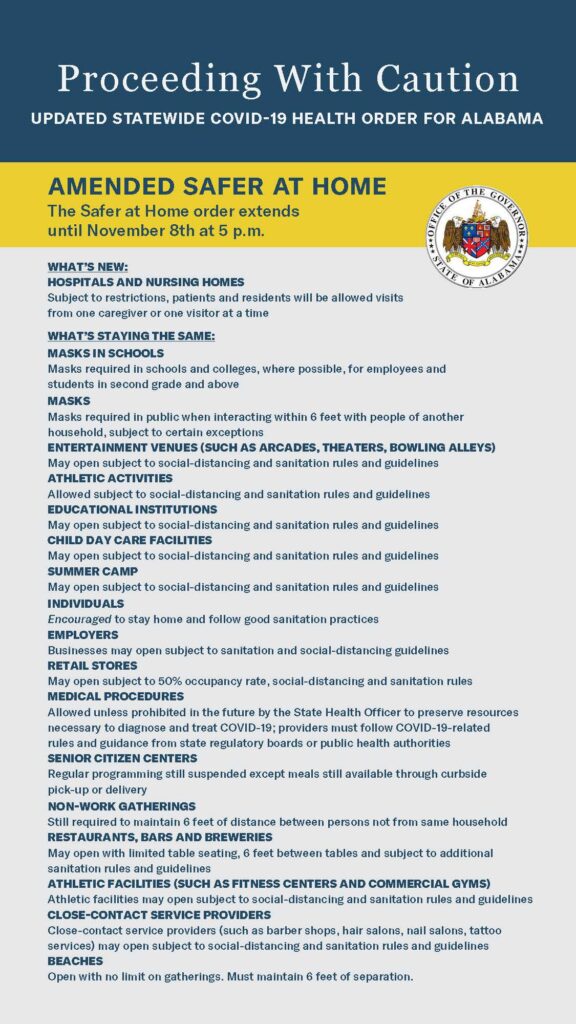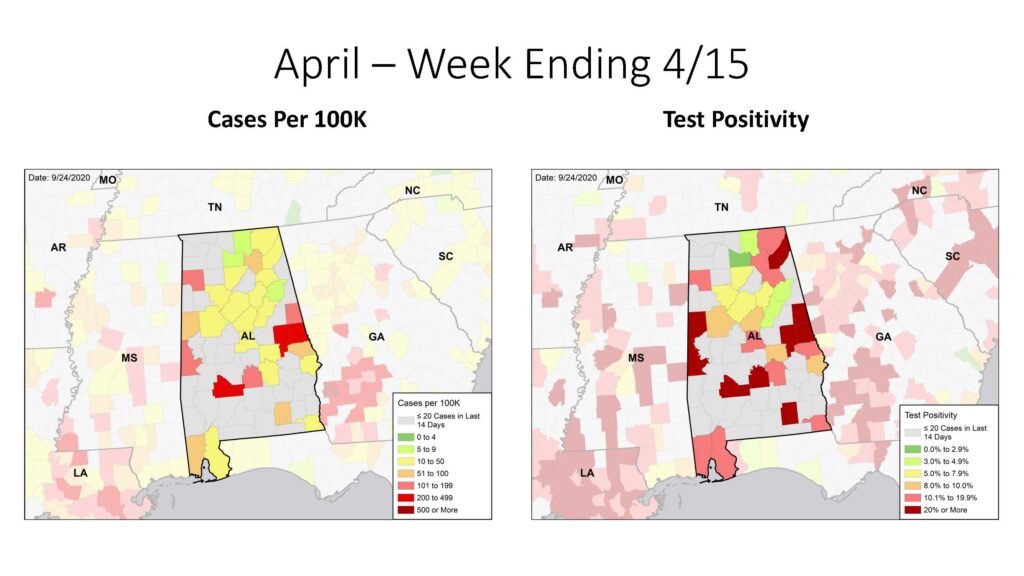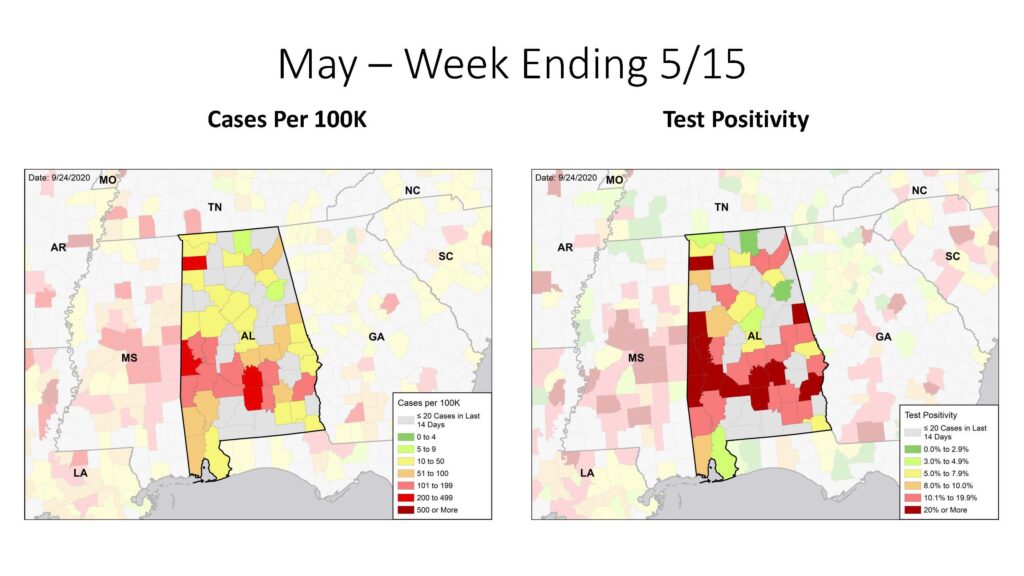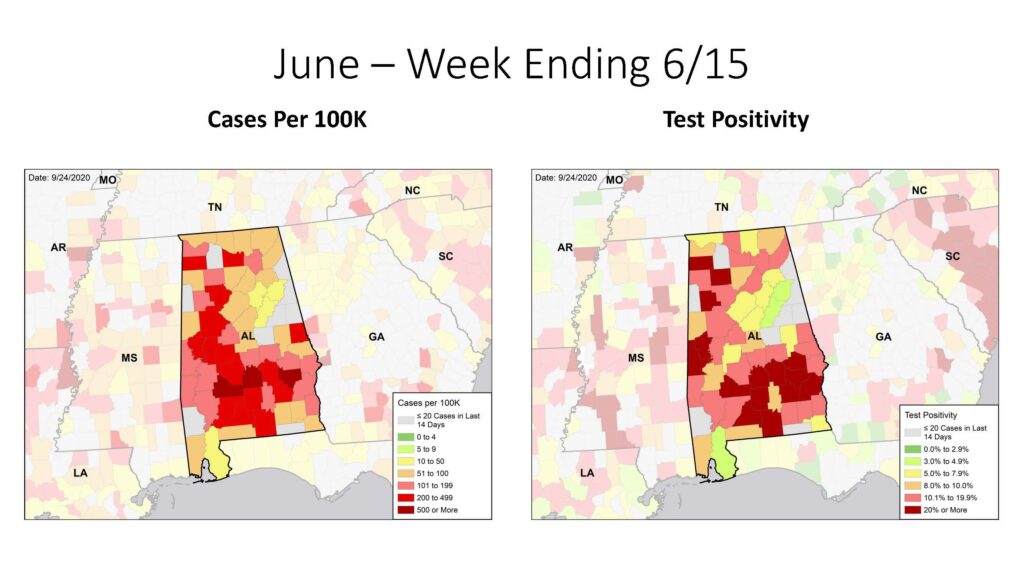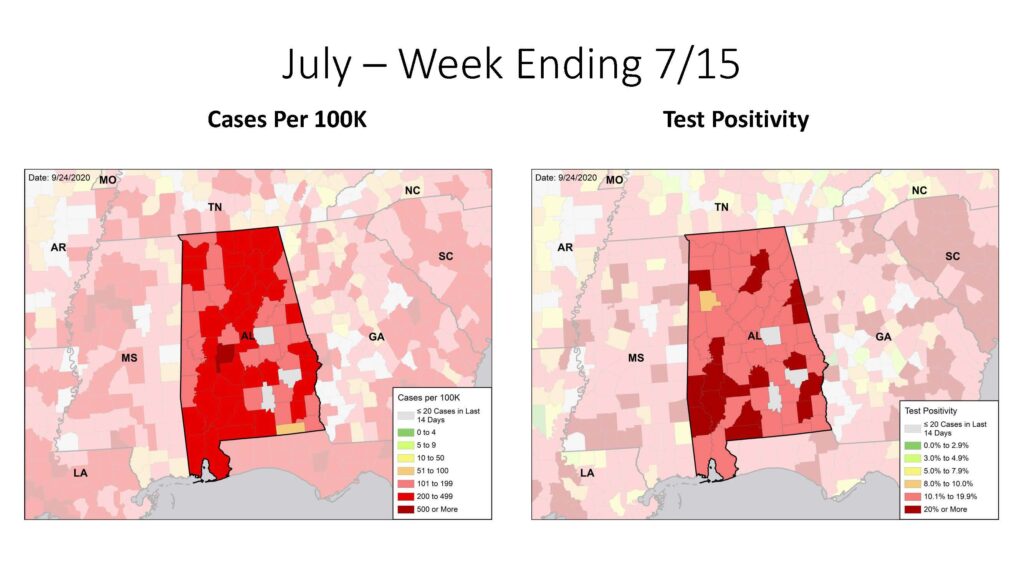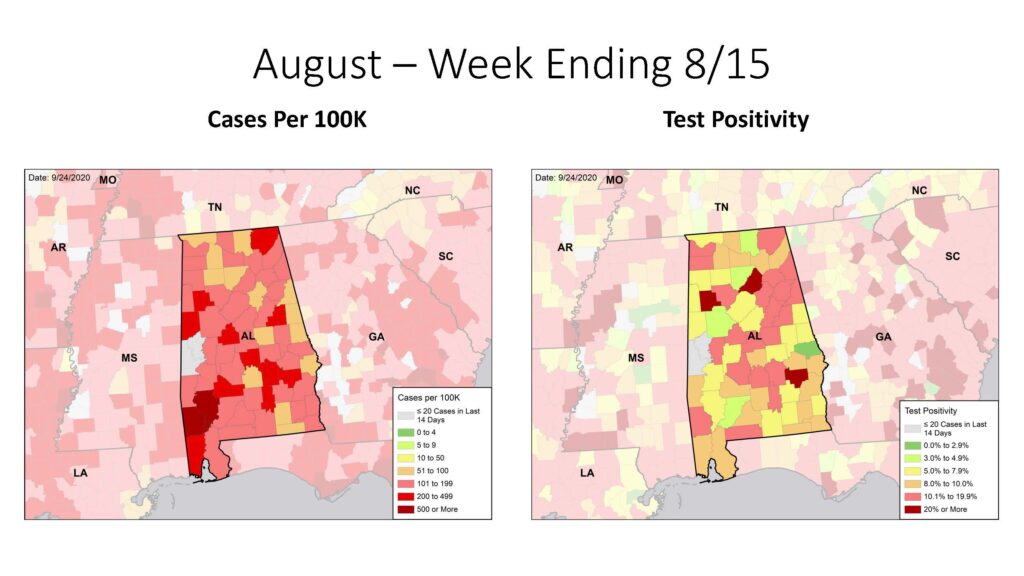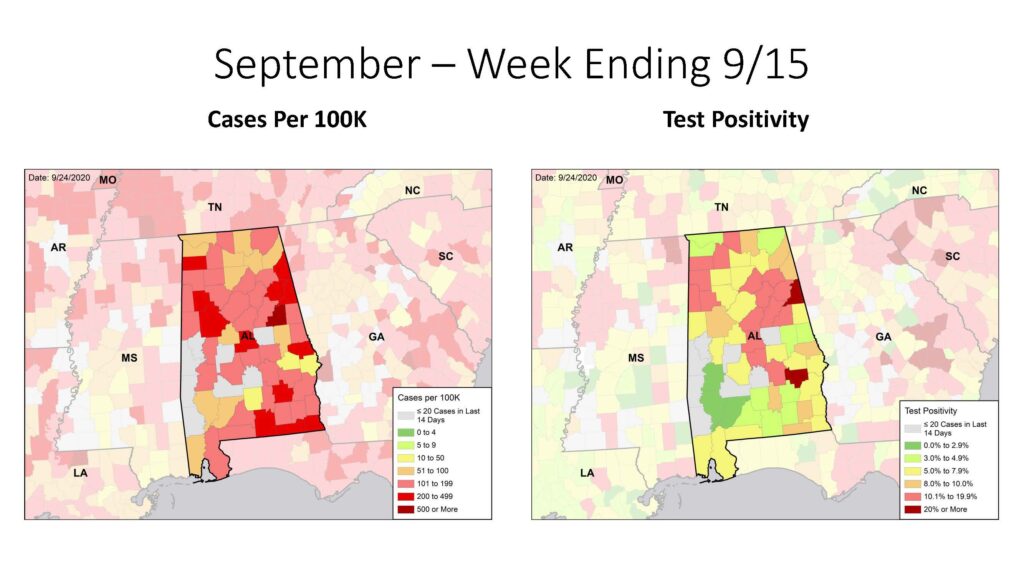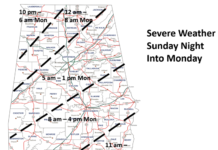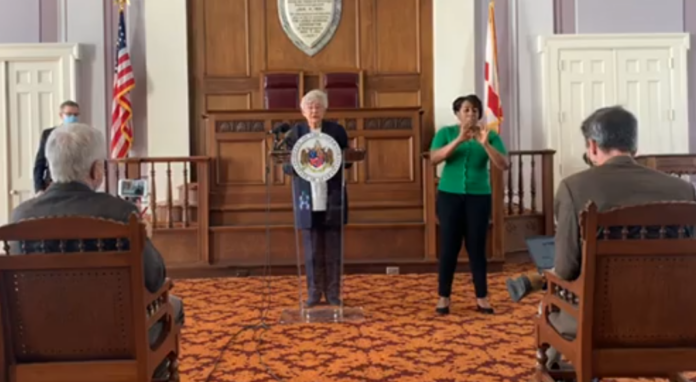
MONTGOMERY, Ala. – Gov. Kay Ivey on Wednesday announced that the state’s Safer at Home Order, including the mask mandate, which was set to expire Oct. 2 has been extended until Nov. 8. The Order was also amended slightly to allow for hospital patients and long-term care facility residents to have one caregiver or visitor present.
“I know that there are many people throughout this state who had hoped that we would follow the lead of some other states who have removed the mask order; we’ve heard from a lot of you, and I hear you. I look forward to being able to lift the mask order as much as you do, if not more, and hopefully that can be sooner, not later,” said Ivey. “But the reason we’re extending this mask order until after the national election, which is Nov. 3, is because it’s important to have a safe environment for our poll workers, poll watchers and those of us who would like to vote in person.”
Both Ivey and Harris said the mask order, which has been in place since July 16, has had a positive impact on the COVID-19 numbers in Alabama, and noted there was not a surge in cases following the Labor Day holiday.
“The fact is, the mask order that we imposed on July 16 is working,” said Ivey, “and the numbers speak for themselves.”
According to the governor, Dr. Deborah Birx, the coordinator of the White House Coronavirus Task Force, in her third visit to Alabama said, “There’s no telling how many lives in Alabama have been saved because of this mask mandate.”
Hospitals and long-term care facilities
The amended Safer at Home Order reads as follows:
Hospitals and similar institutions. Effective October 2, 2020, all Hospitals and Nursing Home/Long Term Care Facilities (including Assisted Living and Specialty Care Assisted Living Facilities) shall ensure that each patient or resident may be accompanied by one caregiver at a time (in the case of hospitals) or receive visits from one visitor at a time (in the case of nursing homes and long term care facilities), subject to reasonable restrictions imposed on the entrance of persons because of the COVID-19 county positivity rate, the facility’s COVID-19 status, a patient’s or resident’s COVID-19 status, caregiver/visitor symptoms, lack of adherence to proper infection control practices, or other relevant factors related to the COVID-19 pandemic, consistent with the following guidance from the federal government:
- For hospitals: “Hospital Visitation – Phase II Visitation for Patients who are Covid-19 Negative” issued by the Centers for Medicare and Medicaid Services (CMS) on June 26, 2020, and available at https://www.cms.gov/files/document/covid-hospital-visitationphase-ii-visitation-covid-negative-patients.pdf.
- For nursing homes: “Nursing Home Visitation – COVID-19” issued by CMS on September 17, 2020, and available at https://www.cms.gov/files/document/qso-20-39-nh.pdf.
- For assisted living facilities and specialty care assisted living facilities: “Nursing Home Visitation – COVID-19” issued by CMS on September 17, 2020, and available at https://www.cms.gov/files/document/qso-20-39-nh.pdf, with the exception of the requirement that “resident and staff testing [be] conducted as required at 42 CFR 483.80(h).”
In addition, each facility subject to this paragraph shall post in a conspicuous location at each public entrance a statement substantially similar to the following statement:
By order of the Governor of Alabama and the State Health Officer, each patient or resident of this facility enjoys certain rights to have one caregiver or one visitor present at a time, subject to reasonable restrictions. If you have questions, you may ask to inspect the facility’s written policies concerning visitation.
State Health Officer Dr. Scott Harris
State Health Officer Dr. Scott Harris spoke about the COVID-19 numbers across the state.
“We’ve passed 150,00 cases statewide since the beginning of this response in March. We’ve had around 14,000 cases over the past 14 days… We’ve had lower average numbers of deaths per day in September than we have seen over the previous months, which is terrific,” he said. “We have so far lost about 2,553 of our friends and loved ones since this began. Around 17,000 Alabamians have been hospitalized over the course of this response. We are now at about half of where we were in late July and early August, between 700 and 800 people in-house around Alabama hospitals each day for the past few weeks, which is certainly a number our hospitals are able to manage and tolerate.”
Harris said the percentage of positive tests is about 7.1% for the last week the State has data. He said that is the lowest it has been so far since July.
“This mask ordinance is working. It works and we have evidence of that,” said Harris. “There have not had any additional restrictions imposed on our state since the Stay at Home Order ended at the end of April. The ABC Board moved up closing time for a little while for bars, but that’s been rescinded. Otherwise, there’s been nothing added at all in our state other than the mask mandate, and yet, that’s when we began to see cases improve, and they have steadily improved since that time. We believe that’s the reason, or certainly the main reason that we’re seeing improvements.”
He also talked briefly about a COVID-19 vaccine. He said the Alabama Department of Public Health (ADPH) has been working in earnest for about the last month or so on a plan that will be submitted to the United States Department of Health and Human Services in approximately two weeks about how to receive, transport, store and allocate the vaccine. He said at first, access will be limited.
“We are working on a plan for how to prioritize the vaccine,” said Harris. “At first, it will certainly be a limited resource. There will have to be some allocation based on priority, and obviously we want to make sure we are protecting those who are at highest risk for serious illness or highest risk for exposure.”
Copyright 2020 Humble Roots, LLC. All Rights Reserved.
